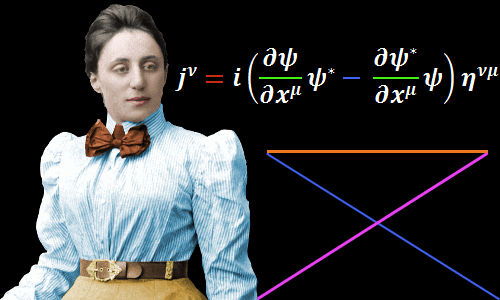Amalie Emmy Noether (23 March 1882 – 14 April 1935) was a German mathematician whose groundbreaking work in abstract algebra and theoretical physics transformed the mathematical landscape of the 20th century. Often described as one of the most important female mathematicians in history, Noether’s contributions are foundational to modern algebra, topology, and the study of symmetry in physics.
Early Life & Education
Emmy Noether was born in Erlangen, Germany, into a family of academics. Her father, Max Noether, was a well-known mathematician, and her mother, Ida Amalia Kaufmann, encouraged her children’s intellectual pursuits. From a young age, Emmy displayed exceptional aptitude for mathematics and science, although educational opportunities for women in Germany at the time were limited.
Noether began her higher education in 1900 at the University of Erlangen, auditing classes as women were not officially allowed to enroll. By 1903, she earned her doctorate in mathematics, specializing in algebraic invariants. Despite her brilliance, she initially faced institutional barriers, including unpaid or unofficial teaching positions at German universities.
Revolutionary Work in Mathematics
Noether’s most celebrated contributions lie in abstract algebra. She developed what is now known as Noetherian rings, a central concept in ring theory, and made profound advances in ideal theory, group theory, and module theory. Her work reshaped the way mathematicians approached structures in algebra, emphasizing generality and abstraction over rote calculation.
In addition, Noether made monumental contributions to physics through Noether’s Theorem (1915–1918), which establishes the fundamental connection between symmetries and conservation laws in physics—a principle that underpins modern theoretical physics, including quantum mechanics and general relativity.

Academic Career & Challenges
Despite her groundbreaking research, Noether faced systemic gender discrimination. She was initially not allowed to lecture under her own name and worked without pay at institutions like the University of Göttingen. Eventually, her brilliance won recognition, and she became a respected mentor, guiding generations of mathematicians who would carry forward her ideas.
In 1933, following the rise of the Nazi regime, Noether, as a Jewish scholar, was dismissed from her position in Germany. She emigrated to the United States and joined Bryn Mawr College and Institute for Advanced Study in Princeton, where she continued to teach and influence the next generation of mathematicians.
Legacy & Impact
Amalie Emmy Noether passed away on 14 April 1935 in Bryn Mawr, Pennsylvania, at the age of 53. Her legacy is enduring: her abstract approaches to algebra laid the groundwork for modern algebraic geometry, number theory, and topology, while Noetherian principles continue to guide research in mathematics and physics.
Today, she is celebrated not only for her intellectual achievements but also as a trailblazing woman who overcame immense societal barriers to transform science. Noether’s name graces the Noether Lecture series and numerous awards in mathematics, inspiring countless mathematicians worldwide.
























